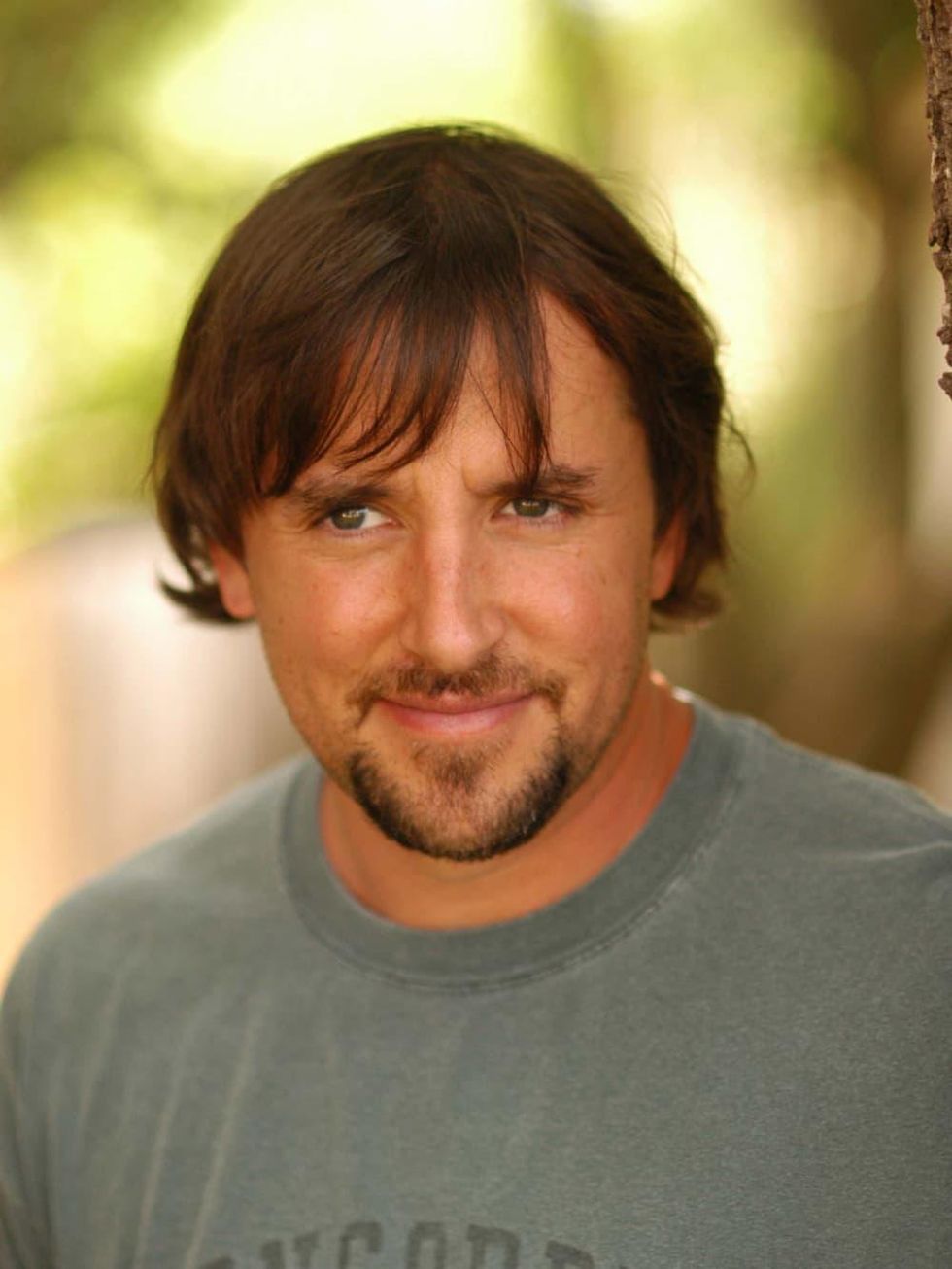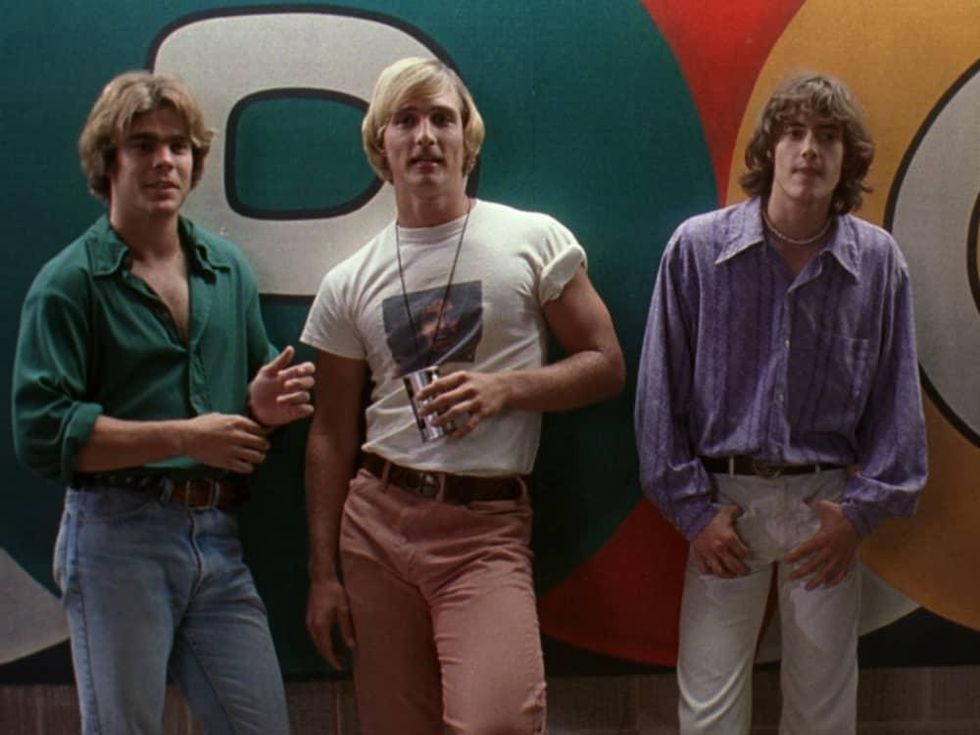Cinema Arts Festival Insider
Dazed and Confused: Houston rebel reflects on the marijuana movie that changed it all
In the unlikely event you need further proof that time flies — sometimes, at warp speed — consider this: Dazed and Confused, Richard Linklater’s 1993 comedy-drama about teenage life in 1976 Austin, is now old enough to qualify as a full-fledged classic. And its Houston-born writer-director, who first attracted attention as a budding-auteur boy wonder when Slacker, his debut feature, hit the art house circuit in 1991, is sufficiently established as a gray eminence to start getting lifetime achievement awards.
Yikes.
Linklater will on hand Friday night at the Museum of Fine Arts, Houston, to receive the Houston Cinema Arts Festival’s Levantine Cinema Arts Award, a prestigious prize that in previous years has gone to such notables as Robert Redford, Shirley MacLaine and, not incidentally, Linklater’s good friend and frequent collaborator, Ethan Hawke.
But wait, there’s more: The award presentation will be followed by a special 20th anniversary screening of the aforementioned Dazed and Confused, a nostalgic view of the ‘70s that, when viewed today with the benefit of 20/20 hindsight, may cue nostalgic memories of ‘90s indie cinema.
"What you see here in the film isn't that much of an exaggeration. Seniors in high school could buy beer."
And speaking of nostalgia . . .
It was a different time, a simpler time. But in many ways, also a more censorious time. Up until a week or so before Dazed and Confused hit theaters in September 1993, the movie was hyped — with a wink and a nod toward the dubious excuse of a recently elected U.S. President — as “a movie for everybody who did inhale.” Considering the amount of marijuana smoking that goes on during the film, the tagline could have been justified as truth in advertising. But that was before the Motion Picture Association of America just said no.
No kidding: The drug allusion was a tad too specific for the MPAA factotums charged with overseeing movie advertising content. So the original newspaper ads had to be deep-sixed, along with TV spots that took a similarly smart-alecky approach to the movie's mild and hazy plot elements.
But Richard Linklater didn’t really care. As far as he was concerned, the MPAA interference was too much, too late. As he proudly admitted during an interview at the Toronto Film Festival, he knew that, once he got Dazed and Confused locked and loaded, the movie’s many episodes of substance abuse couldn't be deleted.
“I felt that, if they did that," Linklater said after the Toronto Festival premiere, “it would be the most expensive short ever made.”
Right from the start, in the very first screenplay draft for Dazed and Confused, Linklater made it clear his movie would be a beer-soaked, pot-clouded trip down memory lane. The teenage characters would be toking joints and soaking up suds throughout most of an 18-hour period following the last day of school before summer vacation.
Which, by the way, was pretty much the way the then-32-year-old Linklater recalled spending much of his own misspent youth.
“You have to remember that, in ‘76, 18 was the legal drinking age,” he said in Toronto. “So what you see here in the film isn't that much of an exaggeration. Seniors in high school could buy beer.”
But what about freshmen? Or, to be more specific, what about freshmen as youthful-looking as the freshman who buys beer, sans I.D., during one of the funniest moments in Dazed and Confused?
“Well,” Linklater said with a grin, “that really happened to me as a freshman: I bought beer at 14. So it's not inconceivable that a freshman could buy beer with the right store, the right owner who just goes, 'Hey, I want to make the $2.50.’ ”
A Houston Rebel
Linklater, who attended high schools in Houston (Bellaire High) and Huntsville, recalled the 1970s as “a time of teen rebellion with nothing to rebel against. Nothing specific, just kind of an overall thing.” With the Vietnam War over, “There wasn't anything to really unite you in a rebellion.”
“Really, any person with a brain should hate high school. It's that simple. I mean, doesn't that make sense?"
He vividly evoked a 1990s version of that aimless and unfocused discontent in Slacker, a no-budget comedy-drama about life in the slow lane. It was filmed on location in and around Austin — as was Dazed and Confused — and attracted serious critical attention with its free-form collage of twentysomething characters who lack the energy, or the money, or both, to get on with the rest of their lives.
“But Slacker never really was a big thing,” Linklater said, eager to dispel some of the mythos that had already been generated by his early success. “Let's get that straight. It was an independent success, but Hollywood didn't come courting. Because there was this question, like, ‘Can this guy make a real movie?’ ”
Fortunately, by the time he was midway through the Dazed and Confused script, Linklater had managed to network with producer James Jacks. Jacks brought the package to Gramercy Pictures, the now-defunct distributor that gave it a green light.
At Toronto, I had to ask: Weren't the Gramercy executive nervous about the drug content? Wouldn't they have preferred to, well, you know, tone down the toking?
“Maybe so,” Linklater conceded. “But I think they didn't want to seem like this vulgarian studio to this independent guy, which I was kind of positioned as being with them.
“And, besides, I don't think people in Hollywood consider marijuana to be a drug. I mean, it might have been different if they would have been using cocaine, or pills. But pot was OK.
“And, besides, it's a period piece, so that made it all right.”
Linklater went into Dazed and Confused knowing all the horror stories about independent filmmakers who get gobbled up by the big, bad Hollywood moguls.
“But at the end of the day here,” he said, “I feel really fortunate that, aesthetically, I got what I wanted. I got my cast. I didn't have anybody forced on me. I didn't have to cast Pauly Shore as somebody.”
(Instead, Linklater got to cast then-unknowns like Matthew McConaughey, Parker Posey, Renee Zellweger, Ben Affleck, and Milla Jovovich.)
“And I got my music, pretty much. I got enough money to make the film, and I got to make my film.”
Better still, Linklater got to speak his piece about high school rites and wrongs, with as much long-simmering resentment as rose-tinted nostalgia.
While many folks tend to remember Dazed and Confused 20 years later as a teens-gone-wild laugh riot, there’s actually a near-documentary quality to much of the film, as Linklater captures his young characters in unguardedly revealing moments of vulnerability and aggression, self-indulgence and self-delusion. Indeed, some of the very best scenes involve the aimless anxieties of teenagers in the process of inventing themselves, and the petty cruelties of older teens who, as seniors, get their first taste of adult power.
In the world according to Dazed and Confused, high school isn’t quite hell, exactly, but it’s definitely a place you look forward to seeing in your rear-view mirror.
“Really, any person with a brain should hate high school,” Linklater said. “It's that simple. I mean, doesn't that make sense? How can you like being completely oppressed by an atmosphere of authority and submission, with mind-indoctrination abounding? There's nothing good about high school.
“If you have a brain, you're hoping just to survive and get out — and then you can, like, quest for real freedom.”
And maybe even accomplish enough to make people want to give you a lifetime achievement award.
(Richard Linklater will receive the 2013 Levantine Cinema Arts Award at 9 p.m. Friday at the Museum of Fine Arts, Houston. Following the award presentation, the Houston Cinema Arts Festival will present a 20th anniversary screening of Linklater’s Dazed and Confused.)
Consider this: Dazed and Confused, Richard Linklater’s 1993 comedy-drama about teen-age life in 1976 Austin, is now old enough to qualify as a full-fledged classic.




